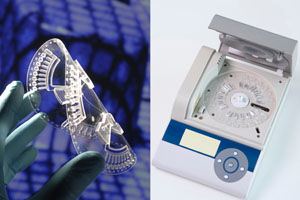Frost & Sullivan: Outsourcing/Offshoring Environment Possesses Considerable Potential for Pharmacovigilance Market
The challenge to manage adverse events in an optimal and efficient way and, at the same time, adhere to regulatory requirements has dictated the need for cutting edge pharmacovigilance tools and technologies.
New analysis from Frost & Sullivan, World Pharmacovigilance Markets in Lifesciences, finds that the world pharmacovigilance market was worth $1859.9 million in 2008 and is estimated to reach $2252.2 million in 2015. In this study, Frost & Sullivan's expert analysts thoroughly examine the following technologies: drug safety database systems and signal detection systems.
“Regulatory bodies such as the Food & Drug Administration (FDA) and European Medicines Agency (EMEA) are intensifying safety regulations, thereby boosting the adoption rates of pharmacovigilance systems by pharmaceutical companies,” notes Frost & Sullivan Senior Analyst E.Sujith. “The need to operate in a cost-effective way is inducing pharmaceutical companies to outsource/offshore their pharmacovigilance operations.”
For large companies, the volume of adverse events is sizeable. Even a product from a mid-size company can generate a high volume of adverse events. There is significant potential for outsourcing/offhsoring for mid-sized companies as well. Most top pharmaceutical companies have well-established systems and processes. Consequently, they are not willing to replace these systems as this entails high costs and is also time consuming. Moreover, the migration of data from one system to another tends to be expensive for most companies. Aligning existing processes to fit in the new system is difficult.
Vendors should educate pharmaceutical companies about technology implications and its importance in their day-to-day operations. This will be necessary to overcoming prevailing skepticism about a new technology and its merits. They should conduct seminars and conferences to trigger interest and make pharmaceutical companies understand that technology that functions optimally can offer substantial return on investments.
“There will be advances in data integration that will support more flexible decision making on drug safety issues,” remarks Sujith. “There is significant scope to extend pharmacovigilance systems to boost their integration with a range of other data sources such as medical records and clinical data.”
If you are interested in a virtual brochure, which provides a brief synopsis of the research and a table of contents, then send an e-mail to Katja Feick using the 'Contact' button below.
Other news from the department business & finance

Get the life science industry in your inbox
By submitting this form you agree that LUMITOS AG will send you the newsletter(s) selected above by email. Your data will not be passed on to third parties. Your data will be stored and processed in accordance with our data protection regulations. LUMITOS may contact you by email for the purpose of advertising or market and opinion surveys. You can revoke your consent at any time without giving reasons to LUMITOS AG, Ernst-Augustin-Str. 2, 12489 Berlin, Germany or by e-mail at revoke@lumitos.com with effect for the future. In addition, each email contains a link to unsubscribe from the corresponding newsletter.
More news from our other portals
Last viewed contents

Jinan Winner Particle Instrument Stock Co., Ltd. - Jinan, Shandong, China
Syngenta releases important plant disease genome data for public use

Cocoon Bioscience S.L. - Derio, Spain

Rapid Detection of Malaria - Department of Microsystems Engineering of the University of Freiburg is Coordinating the Research Project DiscoGnosis
Christopher_Woodhouse,_6th_Baron_Terrington

Microbiome of the nose: removing iron from multi-resistant germs - Whether dangerous staphylococci survive in the nose depends on what other bacteria are present - and how they obtain iron.
Pfizer to Acquire Wyeth
Curetis and Axonlab sign multi-market European distribution agreement - Axonlab becomes exclusive marketing partner for Unyvero product line in certain european countries






















































